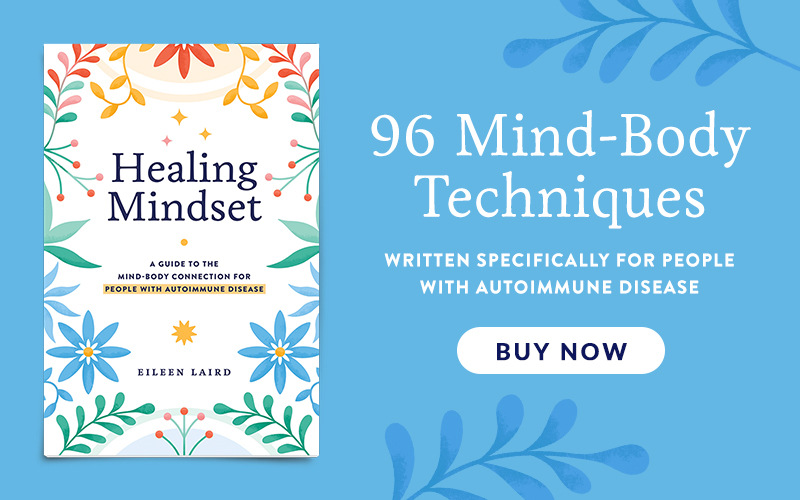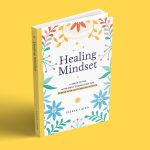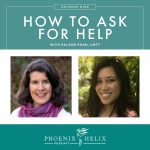“Rest and self-care are so important. When you take time to replenish your spirit, it allows you to serve others from the overflow. You cannot serve from an empty vessel.”
~ Eleanor Brown
What Is Low-Power Mode?
I have an iPhone, and if the battery power drops to 20% or less, it automatically shifts into “low power mode“. This means that the remaining power will be directed to essential tasks only, and all non-essentials are put on pause. The phone also slows down and rests more frequently by going into auto-lock in 30 seconds. This darkens the screen and reminds me of my phone taking a nap. It’s a pretty great metaphor for life, don’t you think? When our personal energy levels aren’t at top power, shifting into low-power mode is a wise choice.
I first heard this metaphor on Gretchen Rubin’s Happier podcast. One of her team members was going on maternity leave and told Gretchen she’d be in low-power mode. She wanted Gretchen to know that she would be available but only minimally. Most of her time and energy would be given to her new child. There are many times we might need to shift into low-power mode, and that’s a happy one! There are also less happy challenges that require us to step back and look at what’s essential and what’s not. For many of us with autoimmune disease, a flare often requires low-power mode. Recently, I experienced this need for different reasons. I returned home from a wonderful vacation with my family to discover I had caught pneumonia from the hot tub at our vacation rental. Who knew that was even a possibility? Fever and exhaustion immediately cut my life down to the essentials. Then 11 days after I developed pneumonia, my father died. He was 90 years old and had lived a long and good life, but I don’t know that we’re ever ready to lose those we love. Grief minimizes energy, too, and death has a way of highlighting what is important and what isn’t. So, I’ve had a lot of experience with low-power mode lately. Below, I share five questions to help us choose our personal low-power mode settings when we need them.
5 Questions to Ask Yourself
1. How much energy do I have?
During the first two weeks of my pneumonia, I was in bed most of the time. There was very little I was capable of doing. If my father’s funeral had been scheduled during that time period, I wouldn’t even have been able to go. Thankfully, it was delayed a week and I was medically cleared to travel (by car, not plane). My focus that week was on my family, but I still took daily naps and went to bed early. Now, I’m home again and the fatigue from the pneumonia is passing, but the grief takes up both time and space. So, I’m still in low-power mode, just at a different level.
2. What is the smallest list of tasks that absolutely need to get done?
When I was bedridden, my to do list became very small: sleep, drink lots of water and bone broth, and try to eat some nutrient-dense foods even though my appetite was low. I canceled everything else. As I started to feel a little bit better, figuring out travel plans became my priority. Work and household tasks stayed on the back burner. Now, I’m dipping my toes back into my normal responsibilities, but I’m still pacing myself. Releasing two “Best of the Phoenix Helix Podcast” episodes gives me time to reschedule the interviews I needed to cancel last month. And I’m continuing to take a break from social media.
3. Do they need to be done by me?
Sometimes, even when we reduce our list to the essentials, it’s still more than we can accomplish if we’re bedridden. So, who can we ask for help? Many of us are used to being the helpers rather than the helped, and asking for help can feel unnatural. But the ability to give and receive equally in relationships is a beautiful thing, and it’s something worth practicing. Reach out to your family, friends, neighbors, and community. Consider hiring help if you have the resources to do so. For me, I’m incredibly grateful to my husband. In addition to taking over the cooking (normally my role), he also chauffeured me 1800 miles round-trip to my father’s funeral when I wasn’t medically cleared to fly and still too tired to drive myself. I also want to thank my assistant, Erin, for keeping my Instagram and Facebook pages going during my social media sabbatical, and offering her help in countless ways to reduce my workload this past month.
4. How can I prioritize self-care?
Sometimes when our energy levels are low, we sacrifice our self-care in an effort to “power through”, but that only depletes us even more. Focusing on rest, nutrient-density, gentle detoxification, and mind-body practices can nurture us back to health. I prioritized all of those things. I also made room for small pleasures. I decided to watch the Harry Potter movies again, renting one each night until I’d watched the whole series. But the biggest form of self-care has been the low-power mode decision. Each week, I honestly evaluate what my body and soul need right now, and those needs override any pressure I feel to return to full-power mode before I’m ready.
5. How can I manage expectations (my own and other people’s)?
I often hold myself to a pretty high standard, so when I need some downtime, I always feel some resistance. The wise part of me knows I need to rest. The “worker bee within” is used to meeting goals and deadlines and has a hard time canceling things and potentially letting people down. However, I’ve had some practice doing this. Like all of you, I’ve experienced autoimmune flares that took this decision out of my hands. And guess what I learned? The world doesn’t end when I take a break. It’s kind of funny that part of me thinks otherwise. This summer, in addition to managing my own expectations, I also let the people in my life know what was going on. That included friends, family, work colleagues, and my wider community. Giving them a heads-up resulted in more offers of help and fewer requests of my time and energy. That took the pressure off, too.
You May Also Be Interested In











Hi Eileen, I knew about your pneumonia but wasn’t aware of your dad’s passing. That must be so hard for you and your mum, I am sorry for your loss. Be well xxx
Thanks for reaching out, Catharina. I truly appreciate it.
Dear Eileen,
My deepest condolences for the loss of your Dad, my prayers are with you for healing and comfort. You have been such a help to me and countless others by sharing your knowledge and experiences. And here you are giving comforting advice to those reading your words, while grieving yourself. Amazing Lady.
I agree, no matter how long someone has lived we are never really ready to part with them, it’s so abrupt and final, even when it’s expected. Both my parents died within 2 months of each other 12 yrs ago and it still seems strange. I’m glad you have the love and support of loved ones and friends and hope you are completely well from your pneumonia very soon.
God bless you,
Lisa
Lisa, thank you so much for writing. Your support warms my heart.